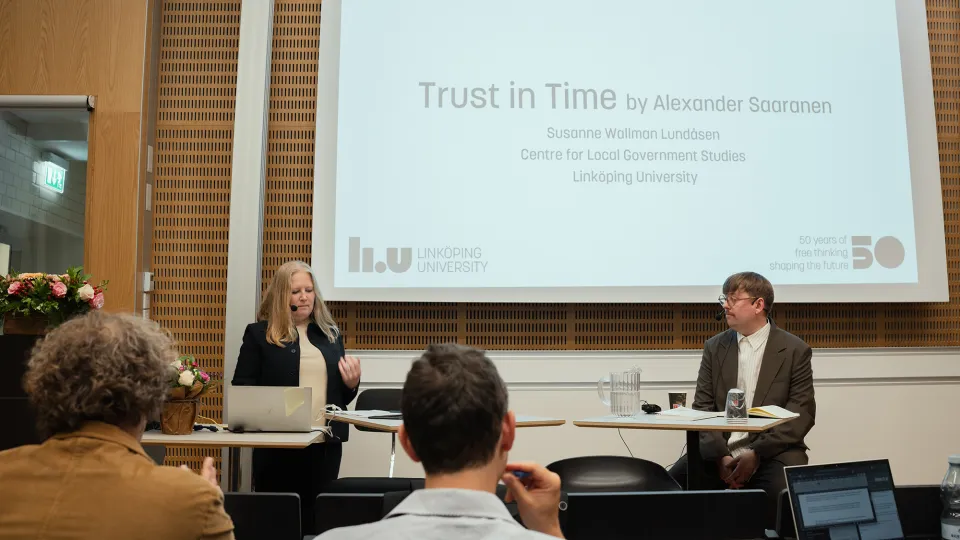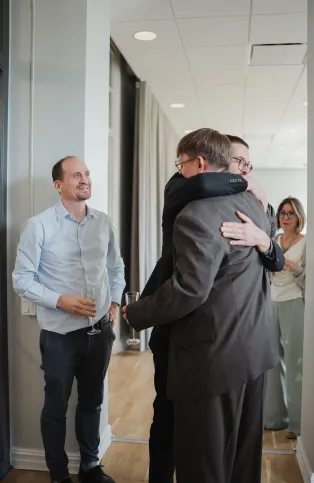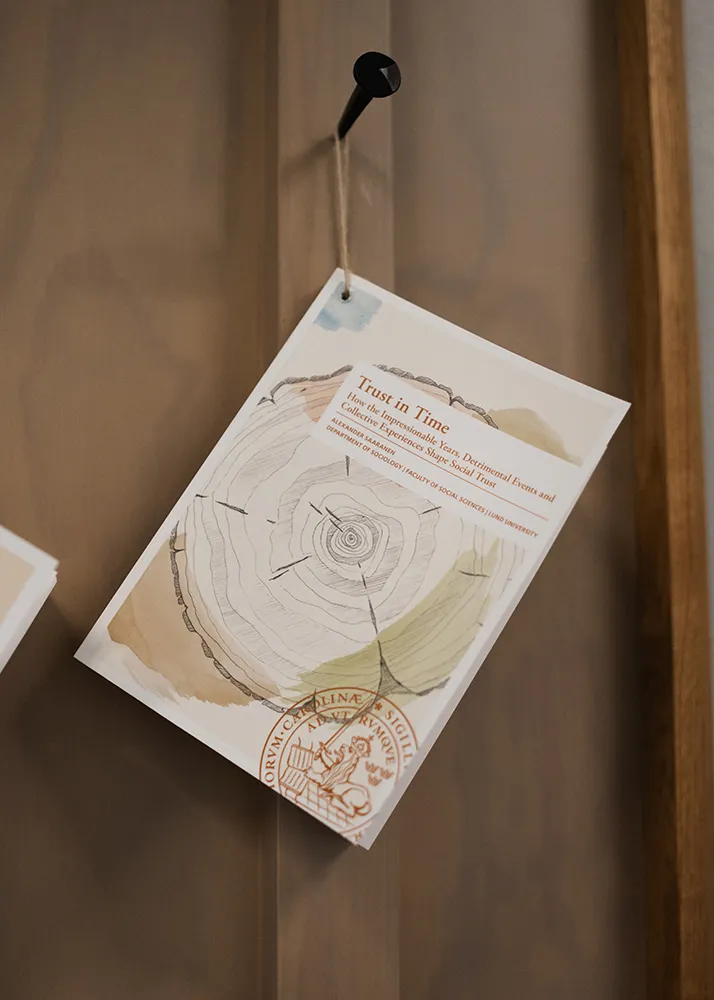On Thursday 12 June Alexander Saaranen successfully defended his thesis “Trust in time” and is now a doctor in sociology. The thesis is based on a series of studies using large-scale survey data, including the Swiss Household Panel, which follows individuals from the age of 14 into adulthood. This unique dataset allowed him to trace how trust evolves from adolescence through early adulthood, a period often overlooked in earlier research.
“Most studies assume that social trust is stable in adulthood,” Saaranen explains. “But during adolescence, trust can change a lot and that matters.”
Trust declines in the teenage years
One of the key findings in Alexander Saaranen’s research is that many teenagers experience a sharp drop in trust when they enter their “impressionable years” – the time when we begin forming our own views and becoming more independent. Over time, trust tends to grow again and stabilise as people reach adulthood.
What helps trust recover? Supportive relationships with parents and friends make a significant difference. If you feel connected and valued, you’re more likely to believe that others can be trusted too.
Early unemployment has a lasting impact
Alexander also examined how negative experiences affect trust. One striking example is unemployment. Losing a job as an adult is difficult, but it doesn’t usually change how much we trust others. For teenagers and young adults, however, it’s a different story.
“Young people are still figuring out how the world works,” Alexander says. “If they feel excluded or unsupported during tough times, it can leave a lasting impression.”
In countries like Switzerland, where youth unemployment is relatively rare, being unemployed can feel especially isolating – and that can reduce trust in others for years to come.
What comes next?
After completing the thesis Alexander wants to continue exploring. One idea is to study how different parenting styles and peer relationships influence trust. He’s also interested in looking at how events within a family might affect a child’s trust in others, such as a parent losing a job.
“It’s been an incredible experience to immerse myself in this research,” he says. “I hope it helps people understand how important our early years are, and how much our relationships shape the way we see the world.”




